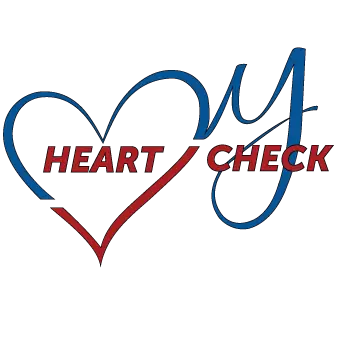SEPTEMBER 1, 2018 BY KATIE PAULSON
Today I sit in a hospital room for my son. For many parents, hospital stays for their children are abnormal. However, my life as a mother has been marked by hospitalizations to help treat my son’s health conditions. On Thursday my son’s mitral valve was repaired by surgeons. Congenital heart defects are one of the most common congenital disability of all infants. Approximately, 1 in 100 babies is born with a heart defect. About 25% of these children will need surgery at some point in their life to repair the defect.
While many heart defects are noticeable in prenatal ultrasounds, my son’s defect was not noticeable until after his birth. Doctor’s noticed a murmur in his heart beat in his first week of life. An echocardiogram located two small holes in his heart. Over the course of several months, the holes in his heart closed. We thought we were out of the cardiac world.
As the holes in his heart closed, the murmur in his heart persisted. Doctors sent us back to cardiology at age three. A follow-up echocardiogram indicated his mitral valve was stiff and scarred. Despite our thoughts, his congenital defect had resolved, doctors realized his mitral valves were abnormal.
For almost three years, our cardiologist monitored his heart. We knew my son needed surgery, but doctors waited until he entered heart failure. For nearly three years, I watched my son lose energy, fall behind developmentally, and watched his health decline.
Heart disease doesn’t just affect the heart. His entire body became weak and frail. He had no energy to play. Walking more than 100 feet at a time proved challenging. Playing at a park, running, or jumping became impossible as his heart deteriorated.
By age 3.5 he stopped having the energy to eat. Doctors placed a feeding tube to help him grow. He started with a G-tube feeding his stomach. By age five, his stomach had almost completely shut down. Doctors moved his feeding tube to his intestines.
As a parent, watching your child deteriorate is heart-wrenching. Children are not supposed to deal with heart failure. Heart disease and failure are common in the elderly and at the end of life. My son dealt with illnesses that killed old men in his childhood. So much of his journey felt very unfair.
There are times in the journey I have felt helpless and angry. Heart disease is not a visible disease. People that met my son couldn’t physically see that his heart was failing. When they met him, they noticed his lack of energy. To strangers, he appeared to be a lazy kid glued to his Ipad.
Heart failure changed my son’s personality dramatically. My sweet child turned into a monster. My husband and I struggled to control our tempers. We knew he was sick. Being angry at his behavior felt cruel. I always tried to put myself in his shoes. By being empathetic to his pain, we cut him a lot of slack in his final days of heart failure.
Preparing for surgery was taxing emotionally and mentally. Both my husband and I were irritable and on edge. I found myself angry about everything going on around me. Mundane occurrences sent me into a full rage. I knew my anger was misplaced. However, in the midst of the chaos of heart failure, I found it impossible to control my emotions.
I’m not sure any parent feels prepared for open heart surgery. However, I felt confident in his surgeon and our team on the day of his operation. We remained hopeful that his size and age would allow the surgeon to repair his heart.
Waiting during surgery was challenging. I found myself finding ways to stay distracted. Writing has always been my outlet. Instead of thinking about his chest being open, I focused on work. After several hours in the operating room, our cardiologist informed us the surgery was successful.
Our surgeon fully repaired his valve. His heart function restored to almost that of a healthy heart. I felt a complete sense of relief. Moving from heart failure to normal heart function felt terrific. I know there is a lot of healing ahead of him. However, I know now my son can finally have a shot at a more normal life.
Congenital heart defects cause many issues for children beyond poor health. Feeding, development, and growth are challenging. My son is delayed in many developmental areas. But I know that we can work to get him caught up. Our life has taken many twists and turns during this process.
However, being on the other side of heart failure feels incredible. Scientific advancements in cardiac surgery continue to improve outcomes for children born with CHD. Yet, the disease continues to be grossly underfunded and under-researched. I know our outcome was positive, but many families do not have the same luck we do. 4.2% of all infant deaths in the first 27 days of life are attributed to Congenital heart defects.
I hope that one day no child ever will die from congenital heart defects.
For more information on Congenital Heart Disease at the American Heart Association.
See more articles by Katie Paulson:
If you want to engage with me on social media, please connect to me with the following links:
On Instagram
